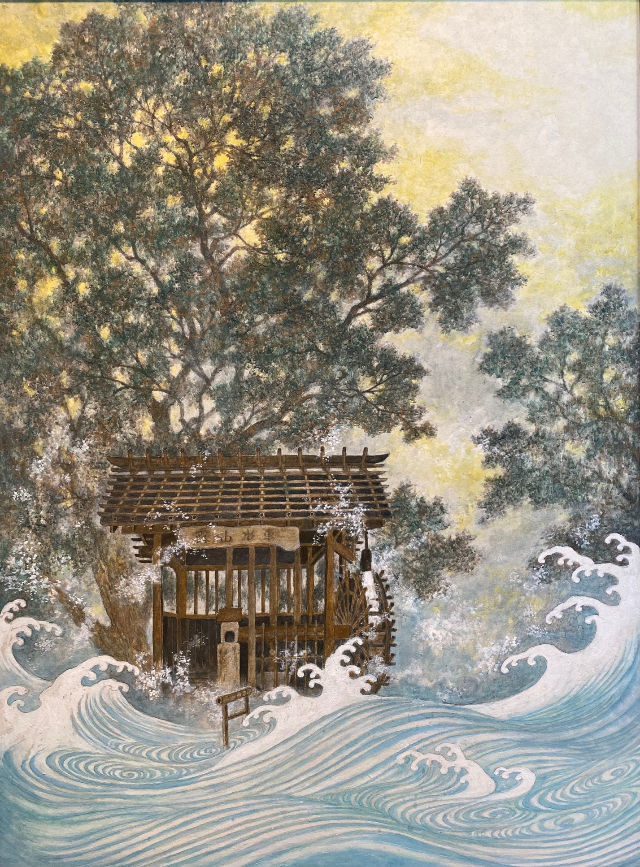I’m Going to Give you a Damn Good Thrashing
- Rebecca Otowa
- Oct 27, 2023
- 5 min read

Recently I read an interesting excerpt from Joseph Campbell’s The Power of Myth.
Basically, he said that when you get older, your body parts gradually give you trouble or function at less than optimal levels. When young, you identify with your body. It is yourself – this is something you internalize in childhood. But in your elderly years, identifying so closely with your problematic body causes nothing but frustration and pain. Instead, he said, try thinking of your body as an old car, a classic car if you like, but your self must change its focus – it just now be now rooted in the mind, in consciousness, which can see the car clearly, with compassion, but not with anger. “Oh, my goodness, the windshield wiper fell off. The right headlight has gone out. The left directional indicator no longer works.”
We usually react to malfunctions of this type in our bodies with anger. It used to work, why doesn’t it now? I am reminded of a time when our shower temperature gauge suddenly broke. I called the repairman, who tinkered around, putting in a new one, and put the old, broken part into my hand. I had felt irritated – “how dare you break and cause me inconvenience!” – but as I looked at the part, I felt compassion and then gratitude. This little part had worked as long as it could (over two decades), but it reached a point where it could no longer do its job. It held up and held up, till one day it could no longer do so. I discovered it was possible to feel gratitude for those twenty years of service, rather than irritation at the sudden breakage.
Testing this way of looking at things -- thinking of my body as an old car, without investing in it to the point of feeling anger, was a revelation. It also made me think of a 70s era BBC program about a testy hotel owner in Torquay, “Fawlty Towers”. When he had trouble with his car at a crucial juncture, the lead character, played by John Cleese, decided to give the car “a damn good thrashing.” He proceeded to beat the car with a branch. He might have felt better after his feelings were relieved, but it didn’t help start the car.
Are we going to hate our bodies because we can no longer see clearly, hear as well as we could before, walk without pain in the knees or hips? Are we going to be reduced to giving our bodies, which have served us so well for so long, often without optimum care, “a damn good thrashing”? Or are we going to treat it with gratitude for the many years of good service and compassion for the fact that it is breaking down?
Recently I caught myself yelling at body parts for not working, or even inflicting pain on myself because a certain activity was now beyond me. What does this achieve except more pain, and the additional feeling of ruptured self-worth because one has elected to punish oneself? Because the body isn’t an old car – it is still ourself, it is the vehicle by which we experience life in this material world. And punishment always hurts, whether self-inflicted or dealt out by an oppressive authority figure.
However we have treated this body in youth, and what kind of body we got genetically from our ancestors, in our elder years we have to reap what has been sown. An acquaintance of mine has seen her husband, over a period of years, slide into dementia. His father and also his mother were demented for years before they died, so genetically, this man will probably suffer the same fate. Ina way, he is a prisoner of his genes, and not only he, but also his family, will suffer accordingly. But is it his fault? Does he deserve to be punished? Thinking about him as he was before the dementia set in – this is both helpful (if it leads to gratitude and compassion) and a recipe for pain (if it doesn’t). He did a lot, thought a lot, worked to capacity, raised children. But now he can no longer even recognize the wife who cares for him daily.
The lessons of life are hard, and sometimes it seems unfair to ask us to keep going in the material world and also keep on learning as long as we are able. Many people opt out of this task in one way or another. But if we are going to go the distance, we have to find the strength from somewhere. Often it is simply a matter of changing our outlook, changing the story we tell ourselves.
So, after age say 50, if we find ourselves no longer able to run a marathon or climb or descend stairs as fast as we could before, instead of getting angry because we used to do it, it is a big change in our thinking to be grateful that we used to do it, and not blame or punish ourselves because that particular activity is now more difficult. What we are on is a big adventure. Human beings have never lived so long… at the same time, our bodies have not seen that many evolutionary changes in hundreds of years. No wonder we are falling apart and no wonder we are angry or scared that this is happening.
Way back (remember?) when we hit puberty and our bodies were changing so fast, we learned to accommodate them with new habits of hygiene or new activities to use our newly developed muscles and minds. This is really no different. One example from my own life: Up until now, I have been devoted to finding efficient ways to move about my large house. If I have to make the trek to my bedroom to put something away, I will look around for other things that also need to go there. So I am often carrying half a dozen things that all need to go to different specific places. But these days, if I need to do something on the way, I can’t juggle all these things as I used to do. I often find myself looking at something that I’m carrying and think, “Why am I trying to do something else while holding this?” I have to drop some, and come back later, or take the things partway, or do the errands one at a time. It is no longer efficient, but it’s what I have to do, so I have to train myself to do it. Similarly, when some little job that I have to do occurs to me, I tell myself I need to do it right then because otherwise I will forget, maybe for days.
Is my life any less enjoyable because I have to tweak it in these ways? No, and there are many other tweaks. I now (mostly) have to sit down to put on my pants and socks, whereas I didn’t before. I have learned, when stepping up, to lead with my right foot (stronger), although I am a lefty and have always led with my left before. Things have changed, and I have to consciously keep up with these changes.
But it feels good to know that my days of giving myself a damn good thrashing have (mostly) come to an end.



This is a remarkably timely essay for me: I had my right hip replaced just three days ago! Like you, I have felt anger, even rage, that my body no longer responds to my commands the way it used to. Like, you Ive even resorted to hitting myself, as if that would somehow frighten my body into obeying the dictates of its benighted owner. Thank you for this one, Rebecca!